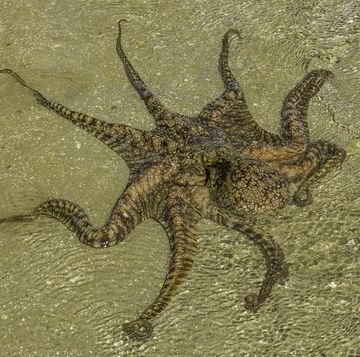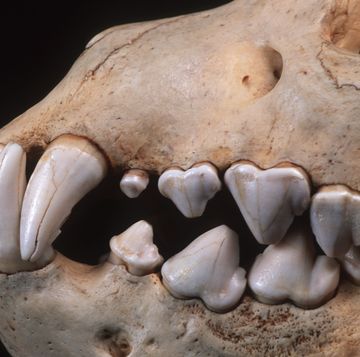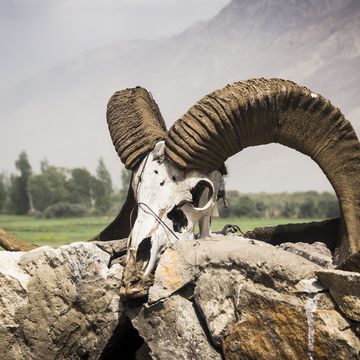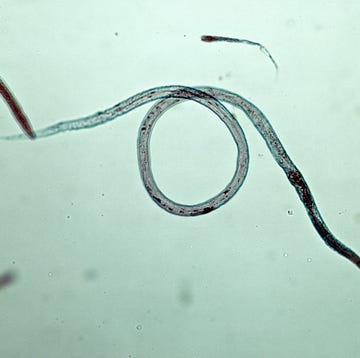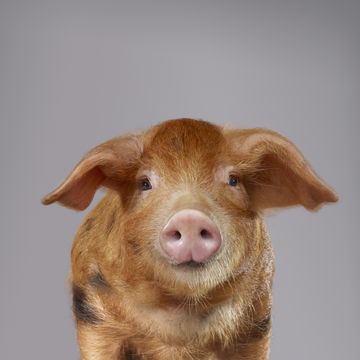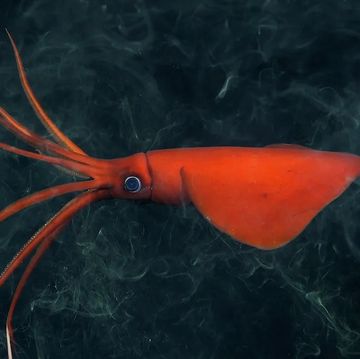Everyone knows the sound of Jurassic Park's T-Rex roar, that horrifically effective combination of a baby elephant, alligator, and tiger. Whatever its scientific inaccuracy, it quickly become the bone-chilling soundtrack for these giants that used to walk the earth. But new research from UT Austin continues to suggest that dinosaurs likely didn't roar, and at least some quacked like modern ducks.
Here's the thing: It's actually really hard to figure out what dinosaurs sounded like because voice boxes don't fossilize as well as good-ole bones. But palentologist Julia Clarke, while analyzing an ancient bird Vegavis iaai, which would have been alive during the reign of the Tyrannosaurus, discovered a syrinx, the organ that gives modern birds their wide range of honks and squawks. Seeing as today's birds are essentially living, breathing dinosaurs, Clarke's discovery only strengthens the avian tie between your everyday pigeon and monsters of our pre-historic past.
But what does this mean for non-flying dinosaurs, like the T. Rex? After making the discovery, Clarke couldn't find a similar structure in non-avian dinosaur fossils, according to The Washington Post. But she also says that paleontologists used to believe only one species of dinosaur had feathers, and now several species are suspected of having them. In an early interview with NPR, Clarke says dinosaurs most likely cooed rather than roared.
Can't wait for the scientifically accurate Jurassic Park special edition, complete with terror-filled quacking.
Source: The Washington Post and Nature
Darren lives in Portland, has a cat, and writes/edits about sci-fi and how our world works. You can find his previous stuff at Gizmodo and Paste if you look hard enough.



